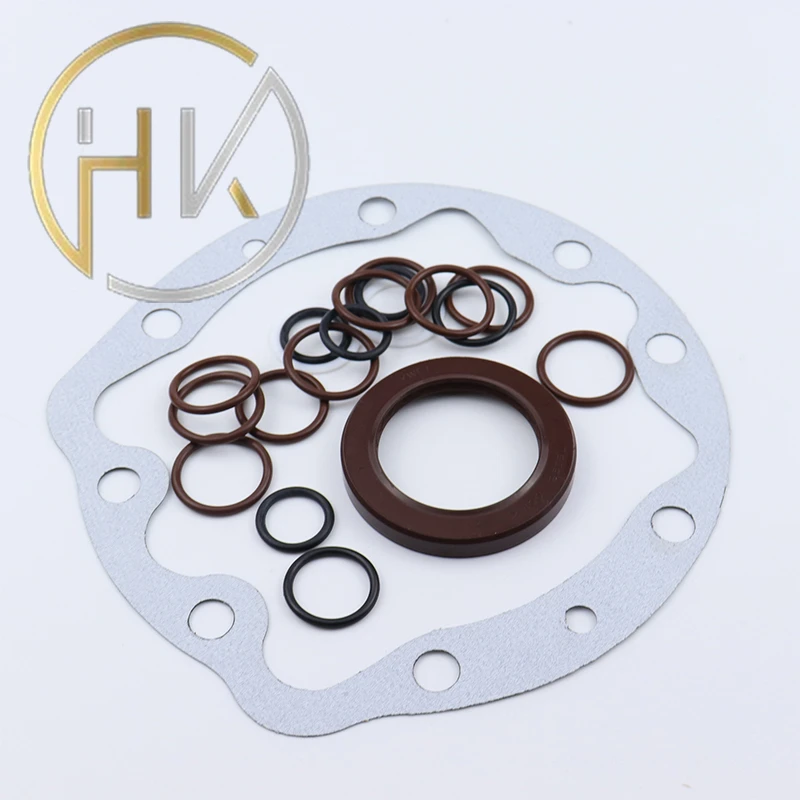Dec . 12, 2024 18:28 Back to list
wheel bearing hub seal
Understanding Wheel Bearing Hub Seals
Wheel bearing hub seals are critical components in the automotive industry, designed to ensure the longevity and efficiency of vehicle wheel assemblies. Often overlooked during routine maintenance, these seals play a significant role in protecting wheel bearings from contaminants, bearing lubrication loss, and overall system failure.
Function of Wheel Bearing Hub Seals
The primary function of a wheel bearing hub seal is to keep lubricants contained within the bearing assembly while simultaneously preventing dirt, dust, and moisture from entering. This containment is particularly essential as wheel bearings operate under conditions that are exposed to elements that can cause deterioration and wear. Without effective sealing, external contaminants can infiltrate the bearing, leading to premature failure and costly repairs.
These seals also help maintain the appropriate level of lubrication. Over time, lubricants can degrade or become contaminated, leading to increased friction and heat generation in the bearings. A secure seal ensures that the lubricant remains effective for a longer period and can minimize the chances of bearing overheating, which is a common failure mode in wheel hub assemblies.
Types of Wheel Bearing Hub Seals
Wheel bearing hub seals come in various designs and materials, tailored to meet specific needs based on vehicle type and expected operating conditions. There are mainly two types of seals used in wheel bearing assemblies
1. Rubber Seals These are the most common type of seals used in modern vehicles. They offer excellent flexibility and can create a tight fit, preventing moisture and debris from entering the bearing assembly. Rubber seals can resist a wide range of temperatures, making them suitable for various driving conditions.
2. Metal Seals These seals are often used in high-performance applications. Metal seals can withstand higher temperatures and pressures compared to rubber seals. While they may provide better durability under extreme conditions, they often require more precise installation due to their rigidity.
Signs of Seal Failure
wheel bearing hub seal

When a wheel bearing hub seal begins to fail, it may lead to several detectable signs. Vehicle owners should be vigilant for the following indications
- Noise A growling or humming noise while driving can be a sign that the wheel bearings are failing, often due to contamination or lack of proper lubrication caused by a compromised seal.
- Vibration Excessive vibration felt through the steering wheel and at the vehicle's wheel can indicate deteriorating wheel bearings, potentially due to seal failure.
- Visual Inspection If you notice grease or oil leaking from the wheel area, it could signal a failing seal that has allowed lubricant to escape. Look for any signs of debris accumulation around the hub; this is often a consequence of contaminants entering through a broken seal.
Maintenance and Replacement
Regular vehicle maintenance can significantly prolong the life of wheel bearing hub seals. It's recommended to inspect these seals during routine checks, particularly in areas with heavy rainfall, dusty roads, or extreme temperatures. Replacing worn or damaged seals promptly can help prevent severe issues with wheel bearings.
When replacing wheel bearing hub seals, it’s essential to use high-quality parts that are specifically designed for your vehicle's make and model. Improperly fitted seals can lead to premature failure, negating the benefits of a replacement. Consulting a professional mechanic for installation ensures the seals withstand the demands of driving conditions.
Conclusion
Wheel bearing hub seals may seem like small components, but their impact on vehicle performance is substantial. By maintaining and promptly replacing these seals, car owners can ensure the well-being of their wheel assemblies, reduce maintenance costs, and enhance overall driving safety. As we continue to enhance our understanding of vehicle maintenance, we must not underestimate the significance of these unsung heroes within our vehicles.
-
Unlocking the Potential of Hydraulic Systems with Essential Sealing Solutions
NewsAug.06,2025
-
Unleash the Power of Your Hydraulic Systems with Our Premium Seal Kits
NewsAug.06,2025
-
Specialized Hydraulic Seal Kits for Breakers, Pistons, and Presses
NewsAug.06,2025
-
Revitalize Hydraulic Systems with Premium Repair and Seal Kits
NewsAug.06,2025
-
Fortify Your Cylinders with Premium Sealing Solutions
NewsAug.06,2025
-
Elevate Hydraulic System Reliability with Specialized Seal Kits
NewsAug.06,2025
-
TCN Oil Seal Metal Ring Reinforcement for Heavy Machinery
NewsJul.25,2025
Products categories
















